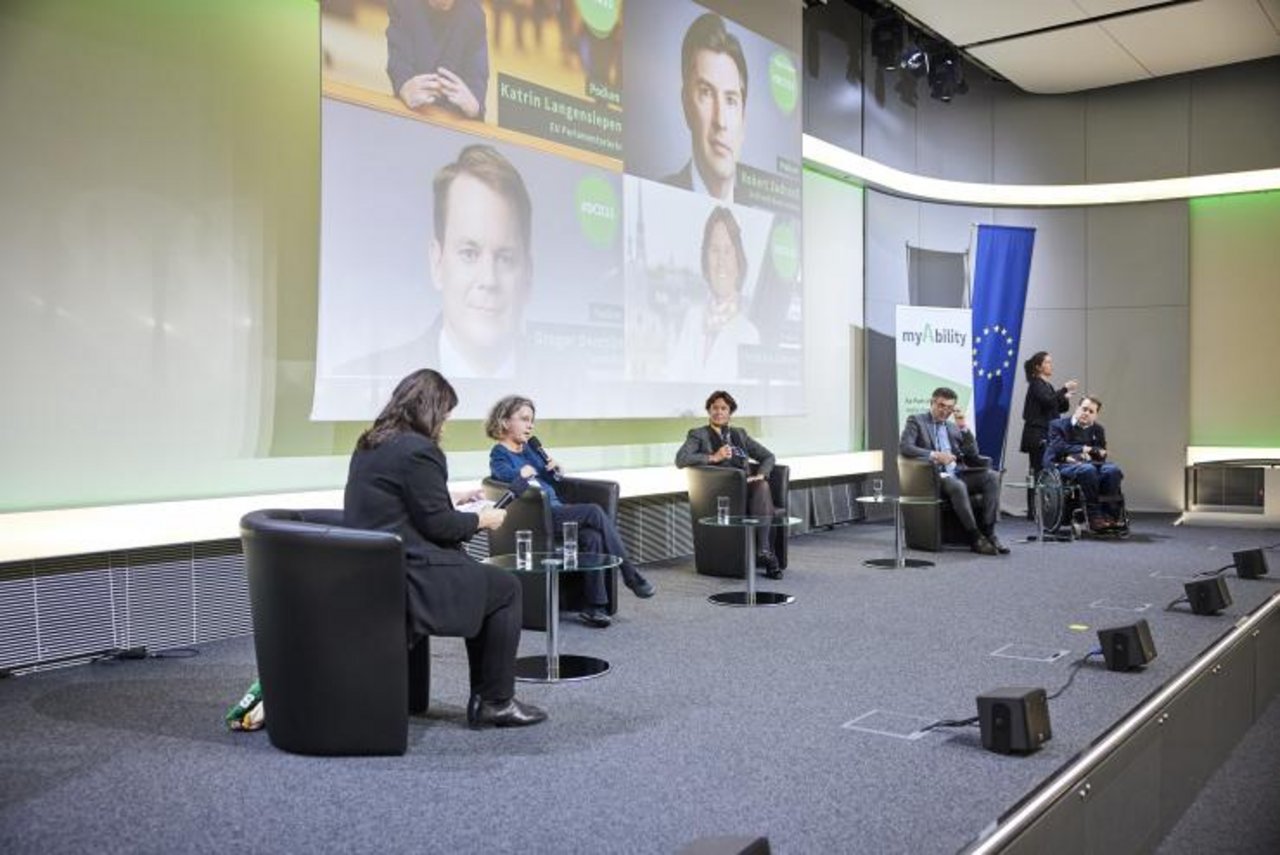Incredible added value for company culture
Everyone on the podium agreed that inclusive teams bring an enormous boost to corporate culture. Christine Catasta appeals to company leaders to embark on the journey to more inclusion since only these companies will be among the most successful ones in the future. Sharing one of her experiences, "... the values in the company have increased incredibly. There was teamwork; support of one another."
Everyone benefits from accessibility
Robert Zadrazil from UniCredit Bank Austria, which has been dealing holistically with the topic of ESG for quite some time, confirms that social sustainability is not a hype. All customers benefit from investments made in accessibility and easy access to the bank’s financial services, which was particularly evident during the COVID-19 crisis.
Participants from 130 different companies took part online, of which 80 percent were from Austria. The importance of social sustainability for companies was confirmed by the answers given to this question: What do you think about social sustainability?
True inclusion requires strategy
Every company can introduce the topic of inclusion in different departments: with HR, the managers or simply in conversations. "However, raising awareness of the topic takes time", says Fides Raffel, head of training at myAbility. "But it is absolutely essential for cultural change."
With this in mind, myAbility has been working for some time now on a digital e-learning platform, where employees can engage with the topic of awareness and sensitization in companies through interactive formats, such as videos and simulated conversations. Watch a short preview of this

![[Translate to English:] Logo von WKO, Bank Austria, takeda, UNNIQA, pwc, Lotterien, Coca Cola HBC, Energie Steiermark, Lenovo](/fileadmin/_processed_/5/4/csm_Kopie_von_Logos_Forum__13___1__1606f6faf2.jpg)